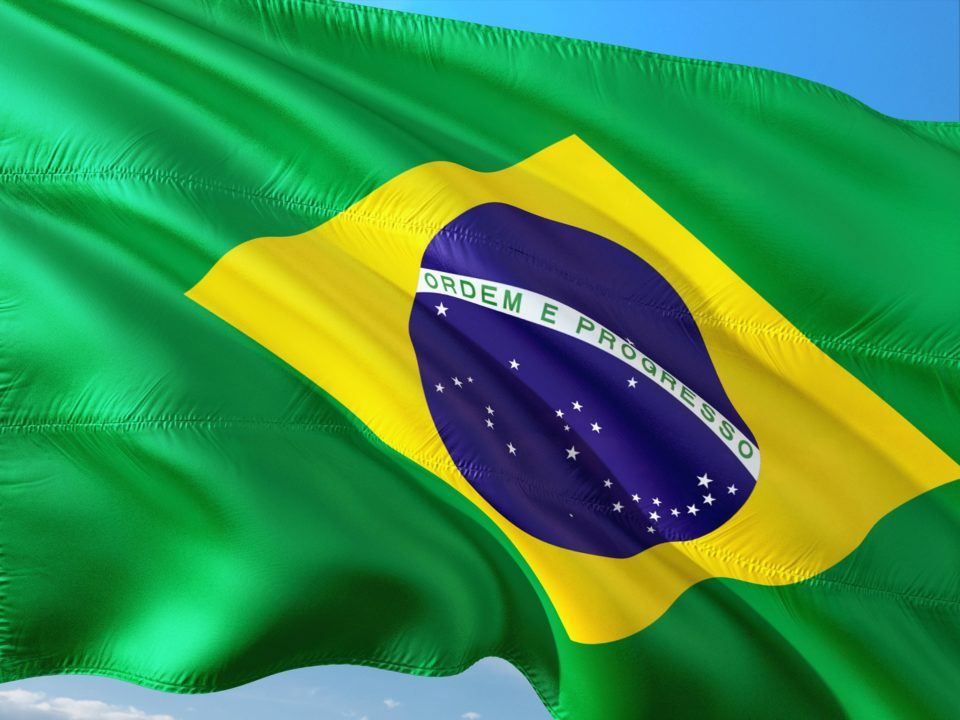Brazil’s swimming federation, Confederação Brasileira de Desportos Aquáticos (CBDA) has received a fine from one of its sponsors due to a breach of contract which took place back in 2017, according to Brazil’s news outlet Globo Esporte.
The financial crisis involving the CBDA, Brazil’s Swimming Federation, has reached a new chapter. Deep in debt, the organization is already unable to receive money from the Agnelo Piva Act. Under the Act, 2% of the gross revenues from the federal lottery should be allocated to the Brazilian Olympic Committee (COB) and the Brazilian Paralympic Committee (CPB) after prizes are paid out.
Earlier this year, the federation lost the sponsorship of the national post office, Correios, who had sponsored the organization for almost 3 decades. Brazil’s Swimming Federation will now have to pay the government a fine of about 2 million Brazilian reais ($514,500 USD) for non-compliance with contract lines.
Correios confirmed the fine. However, they didn’t specify which of the clauses the entity had breached. Per Brazil’s sports journal Globo Esporte, the motive for the sanction is that funds that should have been used in sports investment and athletes were rather used for CBDA’s administrative maintenance. The federation has reportedly been notified and has the right to defense in court.
The violation tied to the breach of contract was one of the factors that contributed to the non-renewal of the bond between both entities, which had lasted since 1991. Swimming, the federation’s main sport, received the largest share of this sponsorship. The share value was just over 1 million Brazilian reais out of the approximately 5 million that were passed on in the last contract with Correios.
The remainder of the grant was divided unequally among all other water sports. Another portion went out to the advising committee, which was required by the sponsor, and one last fraction of that amount went towards CBDA’s expenses.
Expenses tied to payroll, hiring services, and other related expenses added up to 960 thousand Brazilian reais per year. However, the federation intended almost three times its intended purpose. As a result of the way in which the money was distributed, the different aquatics sports did not receive equivalent funding. Once the breach of the clause was verified, Correios fined the CBDA.
Correios‘ contributions were the primary source of income that kept the CBDA in operation. After the contract expired, a renewal was announced, but the papers were never signed.
For nearly two years, the federation has not been allowed to receive funds from the Special Secretariat of Sport and the Agnelo Piva Law, which is operated by the Brazilian Olympic Committee (COB), as a result of irregularities in their accounting – to the tune of $7 million.
Last year, the CBDA also suffered changes at its summit as a result of disagreements. Former general manager Renato Cordani left after complaining about lack of transparency in Miguel Cagnoni‘s actions.
Renato Cordani had been the technical director of the CBDA, Brazil’s aquatics federation, for just over a year. He said he fought to bring transparency to the organization, but regretted that he could not ultimately do so. His letter of resignation was published on Globo’s SporTV, and you can read it (in its original Portuguese) here.
In addition, Brazil’s federation has had massive turnover, including the removal of former president Coaracy Nunes after allegations of corruption. Nunes had been in the role since the 1980s. It took nearly a year to elect his successor, as CBDA rules clashed with FINA’s own rules.
Brazil’s water sports federation has been corrupted with unrest for some time now. In 2017, former president Coaracy Nunes and three other directors, along with two businessmen, were charged over forming a criminal organization that diverted money from Brazilian water sports.
In May, the newly-appointed CEO, Leonardo Castro, left the organization after one month on the job. Castro took the role over from Ana Paula Alves, who had been with the organization since July 2017. Castro had worked with teams in Rio de Janeiro and held a position in the Brazilian Ministry of Sports. At the time, the federation had millions of dollars in debt.
Since the federation stopped receiving funds back in 2017 due to a breach of contract, the organization has had to reduce its staff significantly. The organization was banned from receiving any public funding as a result of the disapproved accounts linked to the prior administration. Further, last week’s 2-million reais fine imposed by Correios has only aggravated the situation for CBDA.
CBDA’s current president, Miguel Cagnoni, who was elected into office back in 2017, will remain as CBDA’s president until the end of his term in 2020.

